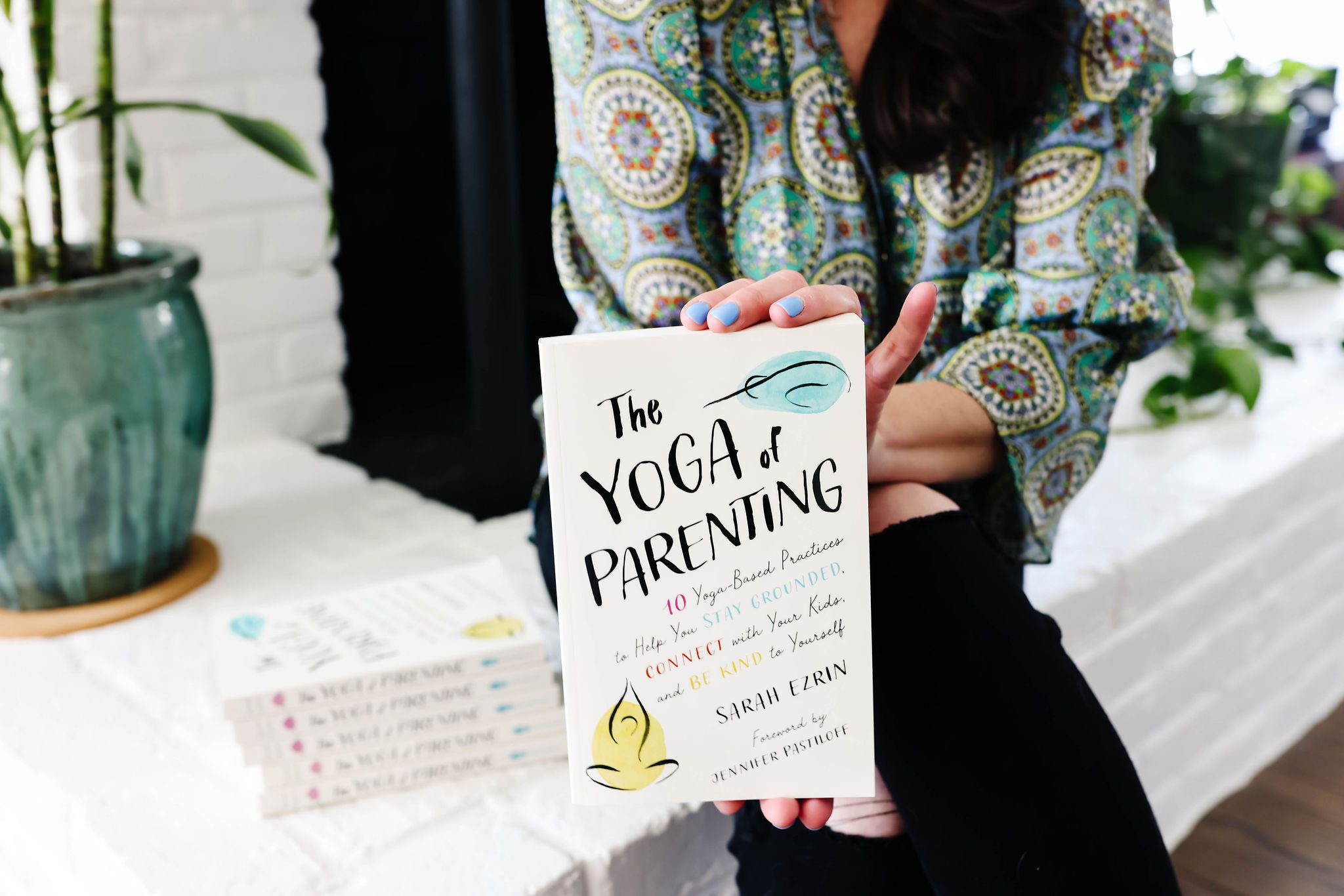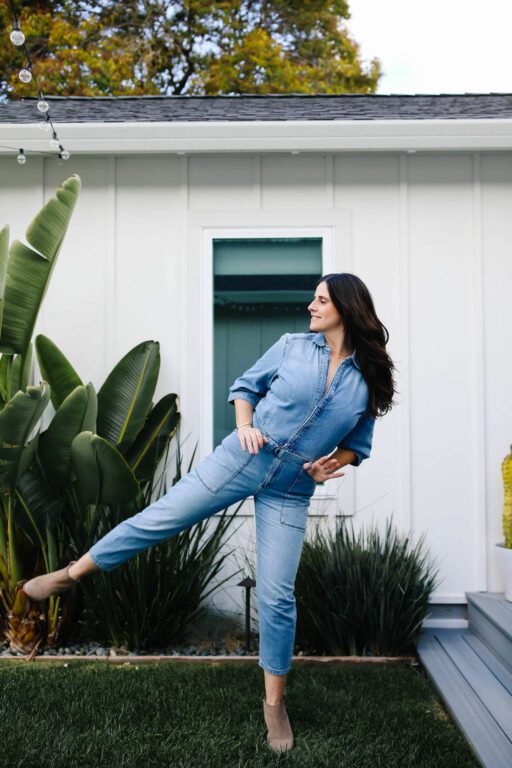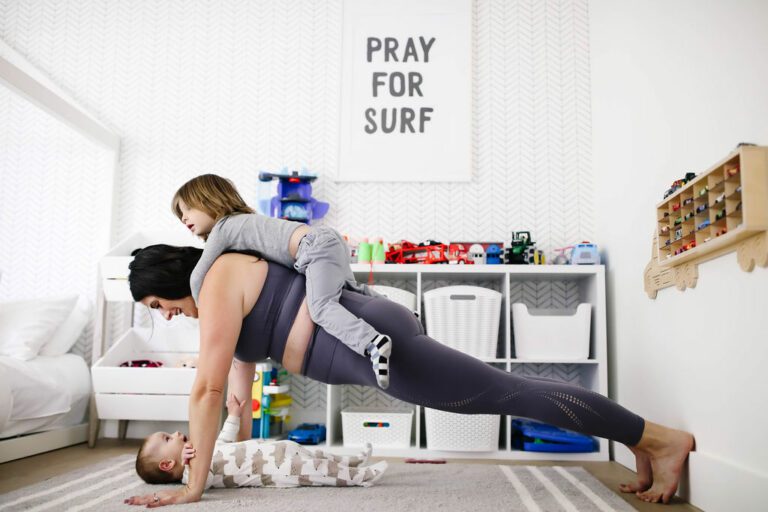
Most parents have a story about their toddler that concludes with an emergency room visit, but not everyone can say they were able to remain (mostly) calm throughout the experience.

“I 100 percent credit my yoga practice for staying (mostly) calm when my toddler stuck a coat hanger through his eyelid (!),” Sarah Ezrin writes in her new book, The Yoga of Parenting: 10 Yoga-Based Practices to Help You Stay Grounded, Connect with Your Kids, and Be Kind to Yourself.
And although her yoga practice looked very different before she was a mother of two—what was once a two-hour vinyasa practice maybe now looks more like a few minutes on a bolster—Sarah, a world-renowned yoga teacher, assures us, it’s ok.
“If we can remind ourselves that yoga is not about the poses but how we work with our mind, then perhaps we can be a lot kinder and more realistic about what our practice looks like these days,” she writes.
To Sarah, parenting is yoga.
“The root of yoga is really about connection (the root word, yuj, means ‚to connect‘),” Sarah explains. “That means that anything we do with a focused mind and whole heart is yoga.”
The Yoga of Parenting is not a handbook on parenting, but rather an abundant well of resources. It’s a deeply personal reflection of Sarah’s experience as a parent and longtime yoga teacher, and a must-read for parents and future parents alike.
 Each chapter examines a yoga-based concept and includes a pose, showing how both the yogic principles and postures apply to parenting. Sarah weaves in breathwork, meditations, and exercises, and forms a full Yoga of Parenting sequence from Tadasana to Savasana.
Each chapter examines a yoga-based concept and includes a pose, showing how both the yogic principles and postures apply to parenting. Sarah weaves in breathwork, meditations, and exercises, and forms a full Yoga of Parenting sequence from Tadasana to Savasana.
Sarah asks her readers: How can we fill our children’s cups if we cannot fill our own?
Self-care is self-preservation, and as a parent, you must create the space to take care of yourself if you want to show up whole heartedly for your kids. Sarah emphasizes the importance of creating healthy boundaries, because sometimes saying no to something means saying yes to yourself.
For Sarah, it’s all about her early morning routine. She chooses to wake up before the rest of her family so she can meditate, write, enjoy her tea hot, and maybe even cuddle her dog.
“Getting up early gives me time to fill my cup,” she said.
Sarah writes with honesty, compassion, and a keen awareness of yogic philosophy, helping parents slow down before reacting to their children. As she says, “presence = awareness.”
She grounds the book in personal reflections and experiences from other parents, reminding us to take a deep breath, that we are not alone, and that we are perfectly imperfect.
Parenthood is a yoga practice and maybe even a spiritual experience. Because just like an inhale and an exhale, we learn to hold space for our children while simultaneously learning to let go. Yoga reminds us as parents that everything is temporary.
“As our children change, we are asked to change, too,” Sarah said. “Watching our children grow up asks us to embrace the cycle of life and death over and over again while also letting go of resistance around those changes.”
—
 Cameron Joy Machell is a writer and journalist covering yoga, travel, and wellness. Always planning her next adventure, she has chased the Northern Lights across Iceland, camped under the stars in the Sahara Desert, and sipped kava with chiefs in Fiji. When she’s not traveling, you can find her at home in New England, in the garden or on her mat.
Cameron Joy Machell is a writer and journalist covering yoga, travel, and wellness. Always planning her next adventure, she has chased the Northern Lights across Iceland, camped under the stars in the Sahara Desert, and sipped kava with chiefs in Fiji. When she’s not traveling, you can find her at home in New England, in the garden or on her mat.